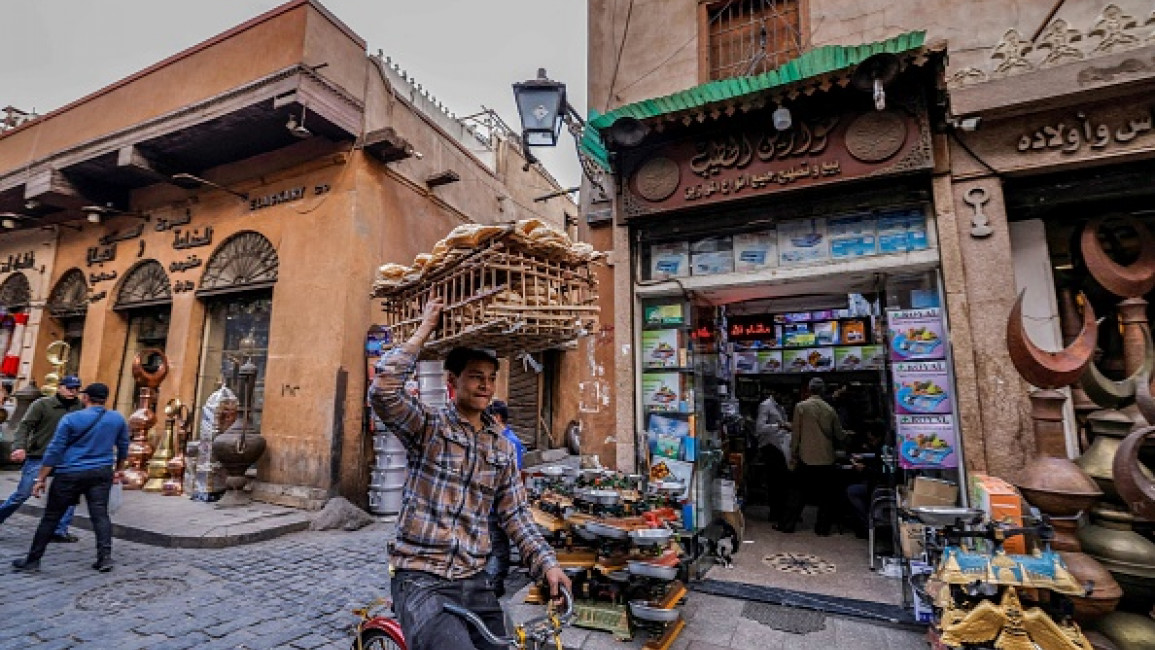Egypt's supply minister Ali Moselhi comes under fire over price hikes, shortages
Egypt's lower house of the parliament has blamed Minister of Supply and Internal Trade Ali El-Moselhi for the recent price hikes and shortage of essential commodities amid an unforgiving economic crisis that has taken a toll on the North African country for almost two years.
During what local news outlets described as "a stormy session" held on Tuesday, 16 January, Moselhi responded to motions submitted by over 90 MPs who called on him to step down and demanded an explanation for his ministry falling short in regulating the local market rather than leaving it for traders to control.
In his defence, Moselhi emphasised that the government had been exerting efforts to set fair prices and address criticism about the absence of market regulation.
"The lack of organised markets has hindered efficient [government] supervision… but there are plans to establish controlled markets and logistics zones to facilitate better…control over products," Moselhi told the MPs.
In Egypt, low and average-income households are the ones heavily crushed by the economic crisis in a country where almost 28 per cent of the nearly 105 million population live below the poverty line.
In recent weeks, the prices of onion, a basic ingredient in most Egyptian food recipes, sugar, and cooking rice have immensely soared despite being mainly cultivated domestically.
The value of bread, the most strategic commodity in the country, has, meanwhile, increased by about 50 per cent at bakeries when the government has limited the amount of subsidised bread offered to the poor and limited-income brackets. In contrast, others were randomly denied their rights altogether.
The local currency, the Egyptian pound, has been struggling against the US dollar for almost two years, leading prices of consumer products to hike, primarily since Egypt depends on importation rather than domestic production, especially wheat.
Egypt is the world's largest wheat importer, and its current economic problems have been blamed on external factors such as the Russian war on Ukraine and the COVID-19 pandemic, which have impacted global supplies of other essential commodities.
Several of Moselhi's advisors have been facing corruption charges and are currently in custody over the alleged profiteering. They have been accused of withholding basic commodities from the local market to cause their prices to rise and receiving bribes to facilitate the distribution of low-quality goods in the market.
Last month, Prime Minister Mostafa Madbouli categorised seven basic commodities: cooking oil, fava beans, rice, milk, sugar, pasta, and white cheese as strategic goods, legally prohibiting any attempt to withhold them from the market.
"But the prices of these goods have witnessed regular hikes as the government failed to control them, which implies poor performance as well as possible corruption," a prominent socioeconomic analyst told The New Arab on condition of anonymity.
"At the same time, Moselhi is being used as a scapegoat for MPs and media to slam and hold accountable so that the general public could feel relieved that somebody out there is blamed for their ongoing ordeal. This doesn't mean a valid solution is on the horizon, though," the analyst argued.



